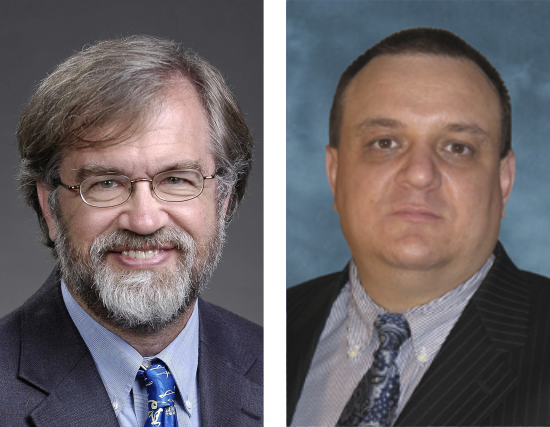
AI Seminar
Can Robots Behave Well as Members of Society? & Natural Language Processing for Collective Discourse
Add to Google Calendar

Kuipers: Robots and other AIs are becoming increasingly numerous, and they are increasingly acting as members of our society. They drive cars autonomously on our roads, help care for children and the elderly, and run complex distributed systems in the infrastructures of our world. These tasks sometimes present difficult and time-critical choices. How should robots and AIs make morally and ethically significant choices? By considering how robots should act in society, we ask what are the pragmatic benefits to individuals, and to society as a whole, of acting morally and ethically. How should effective moral and ethical reasoning be done, to obtain these benefits? Recent results in the cognitive sciences shed light on how humans make moral and ethical decisions. Humans expect themselves and others to act in ways that benefit the entire society, not just themselves. Following ethical and moral constraints often leads both the individual and the society as a whole to reap greater benefits than would be available to self-interested reward-maximizers. As robots and AIs take a larger role in our society, should they be considered as members of society, along with humans, rather than simply as tools for use by humans? How should they behave, to act well as members of society?
Radev: Research in the Computational Linguistics And Information Retrieval lab (CLAIR) focuses on innovative applications of Natural Language Processing such as graph-based methods for question answering, text summarization, survey generation,text clustering, lexical semantics, scientometrics, bioinformatics, and social network analysis. In this talk, I will describe three current projects related to Collective Discourse. Collective Discourse is a term used to describe text corpora produced by large numbers of users. In the first project we team up with the New Yorker magazine. Each week a captionless cartoon is published in the magazine and thousands of readers try to come up with funny captions for it. In our work, we try to uncover the topics of the jokes in the submitted captions. The second project is about analysing a corpus of word clues used in the New York Times crossword puzzles. We compare different clustering methods for word sense disambiguation using these crossword clues. The third project is about the automatic generation of citation-based summaries of research articles. These summaries describe what readers of the papers find most important in the cited papers. I will also briefly mention some other current projects in the CLAIR lab.
Kuipers: Benjamin Kuipers is a Professor of Computer Science and Engineering at the University of Michigan. He previously held an endowed Professorship in Computer Sciences at the University of Texas at Austin. He received his B.A. from Swarthmore College, and his Ph.D. from MIT. He investigates the representation of commonsense and expert knowledge, with particular emphasis on the effective use of incomplete knowledge. His research accomplishments include developing the TOUR model of spatial knowledge in the cognitive map, the QSIM algorithm for qualitative simulation, the Algernon system for knowledge representation, and the Spatial Semantic Hierarchy models of knowledge for robot exploration and mapping. He has served as Department Chair at UT Austin, and is a Fellow of AAAI, IEEE, and AAAS.
Radev: Dragomir Radev is a Professor of Computer Science and Engineering and Information at the University of Michigan and also has an appointment in the Department of Linguistics. He has a PhD in Computer Science from Columbia University, where he also holds a Visiting Professor title. Dragomir is an expert in Natural Language Processing and Information Retrieval. He is currently working in the fields of multi-document summarization, lexical semantics, multilingual NLP, open domain question answering, and the application of NLP to other areas such as Bioinformatics and Political Science. Dragomir is the secretary of ACL (Association for Computational Linguistics). He is an ACM (Association for Computing Machinery) Distinguished Scientist. Dragomir is also the founding program chair of the North American Computational Linguistics Olympiad (NACLO) and the coach of the US team for the International Linguistics Olympiad. Dragomir has close to 200 international publications as well as three patents. Dragomir has worked for or consulted for IBM, Yahoo, Microsoft, AT&T, and other companies. He has been funded by a number of agencies including NIH, NSF, DARPA, and IARPA. In 2013, Dragomir received the University of Michigan's Distinguished Faculty Award.
 MENU
MENU 
